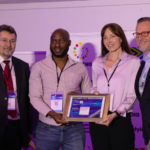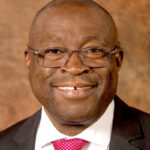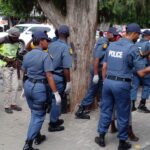The Presidential Employment Stimulus Package (PESP) employment programme has created one million job opportunities since its inception in the late 2020.
The Department of Public Works and Infrastructure (DPWI) contributed to the PESP and was granted an amount of just over R158.8 million to participate in job creation under the PESP.
The funding was for 1 560 participants in the 2020/21 financial year effective from 1 November 2020 – 31 March 2021.
A total number of 1 886 beneficiaries participated in DPWI PESP programme of which 1 113 were females and 773 were males.
The aim of the programme was also to equip beneficiaries with experience and skills to strengthen their employability opportunities.
The recruitment of beneficiaries was decentralised to regional offices and the opportunities were advertised nationwide. The department’s unemployed database skills for infrastructure was utilised to source additional beneficiaries where required. The recruitment was further aligned to the District Development Model.
“As DPWI, we were able to employ graduates in various projects in the department as part of the PESP,” the Department of Public Works and Infrastructure said in a statement.
This included the employment of graduates for the Welisizwe Rural Bridges Programme, as well as artisans and professionals in facilities management and waste management.
“The Presidential Employment Stimulus Programme has encouraged real innovation in how we deliver public employment programmes across government, from how we recruit participants to the type of work that is supported.
“We must continue to take valuable lessons from this programme and expand it to continue creating much needed jobs for our people including highly skilled jobs.
“Our youth have a major role to play in building South Africa back better and we must continue to invest in them every day by providing them with the skills and work experience so that they are better equipped for the job market,” the department said.
Beneficiaries recruited by DPWI included engineers, town planners and architects. Many of these graduates were able to secure external employment since being part of the PESP.
Some of the programme outcomes as a result of the work of the PESP beneficiaries included:
– Water and Energy Efficiency Facilities Management work: energy and water audits were conducted at 15 facilities
-Water and Sanitation Facilities: 17 water treatment plants operated and maintained
– The Welisizwe Rural Bridges Programme: 350 sites identified for technical assessments and 400 desk top assessments conducted while 12 rural bridges were completed.
– Facilities Management: Conditions assessments were conducted on 113 state facilities and 53 technical maintenance tasks completed.
– Real Estate Management: 698 rates verification of client’s accounts and 177 immovable assets updated on the register
– In house construction projects: 8 feasibility studies conducted, 3 sketch plans developed, 56 site visits conducted
-Public Private Collaborations: 35 water treatment plants operated and maintained
The programme forms part of the Strategic Integrated Projects (SIPs) and the Infrastructure Investment Plan – a vehicle within the Economy Reconstruction and Recovery Plan.
The PESP participants were part of teams which identified high risk sites where Welisizwe Rural Bridges can be constructed.
A total number of 350 sites were physically identified and 400 were identified through the desktop exercises. These technical assessments are critical for planning and roll out of the programme.
The professionals that were appointed under the PESP played a major role in capacitating DPWI with the technical skills. They were involved in the in-house designs and feasibility studies which saves 10% of the consulting fees. The professionals further monitored the works of consultants to ensure that they don’t overcharge the state.
The town planners formed part of the in-house team that executed town planning services 100% in house. The architects are designing the Correctional Services Centre to be built in the Free State. The design is done 100% in-house.
DPWI continued to create employment opportunities in the 2021/22 financial year allocating funding from within the department and jobs were created under the Economy Reconstruction and Recovery Plan (ERRP) skills programme.
The department re-appointed PESP beneficiaries into the ERRP – Skills Development Programme effective from July 2021 till 31 March 2022. The total number of beneficiaries that participated on ERRP – Skills programme was 1 230 across all nine provinces. Of the 1 230 beneficiaries, 719 females and 511 males.
The beneficiaries were placed in the following programmes:
– Facilities Management (Water & Efficiency, Conditions Assessments, Call Center, Technical Workshop, and Water Treatment Plants)
– Welisizwe Rural Bridges Programme
– Real Estate
– Construction Project Management
– Project Administrators are appointed to provide Administration support to the ERRP – Skills Development Project.
The department said the COVID-19 pandemic has had a devastating economic impact, threatening the jobs and livelihoods of many South Africans – especially the most vulnerable.
“The Presidential Employment Stimulus sought to confront this impact directly, as part of government’s broader economic recovery agenda. It aimed is to use direct public investment to support employment opportunities.”












